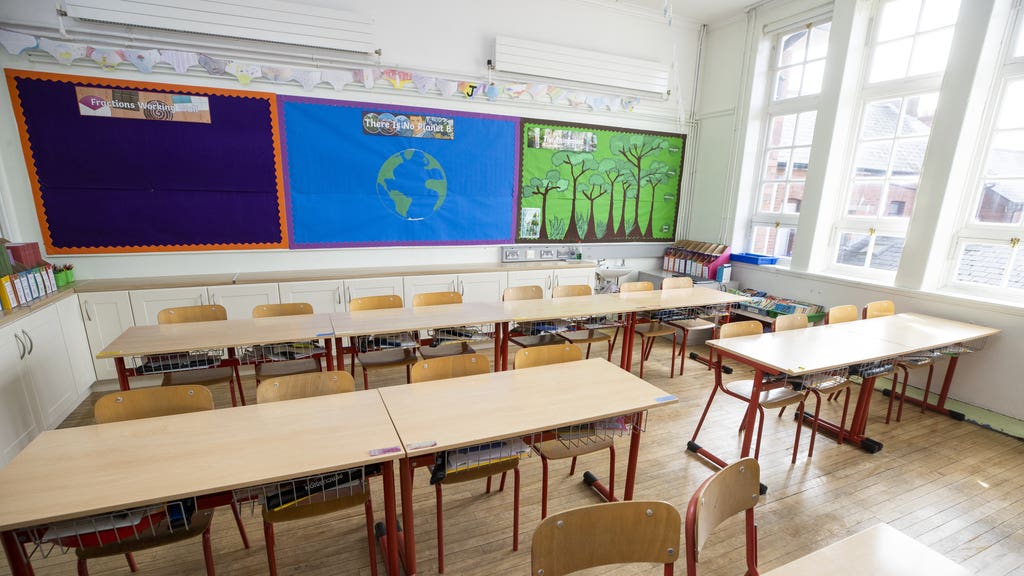Black students need dedicated education programme, Gavin Williamson told
Exclusive: Government has previously said it does not design education policy for ethnic groups, before announcing cash injection to boost attainment levels for Gypsy, Roma and Traveller children

Your support helps us to tell the story
From reproductive rights to climate change to Big Tech, The Independent is on the ground when the story is developing. Whether it's investigating the financials of Elon Musk's pro-Trump PAC or producing our latest documentary, 'The A Word', which shines a light on the American women fighting for reproductive rights, we know how important it is to parse out the facts from the messaging.
At such a critical moment in US history, we need reporters on the ground. Your donation allows us to keep sending journalists to speak to both sides of the story.
The Independent is trusted by Americans across the entire political spectrum. And unlike many other quality news outlets, we choose not to lock Americans out of our reporting and analysis with paywalls. We believe quality journalism should be available to everyone, paid for by those who can afford it.
Your support makes all the difference.A national education programme for Black students should be implemented as soon as possible, the education secretary has been told.
In a letter seen by The Independent, Diane Abbott and Lord Simon Woolley – chair and vice-chair for All-Party Parliamentary Group (APPG) for Race Equality in Education –have written to Gavin Williamson to ask to discuss the proposal with him.
This follows previous correspondence sent on 2 August which went unanswered.
Similar to that of the £1 million education programme announced this year for Gypsy, Roma and Traveller children, which the APPG has welcomed, the initiative would be geared towards reducing exclusions and drop-out rates and helping improve pupils’ “pathways to employment” among Black pupils.
“Like you, we believe that education is the key to levelling up the nation,” the letter, sent on Monday, reads.
“As you have rightly said, by driving up the skills base of a community, we drive up what it will achieve. We would welcome the opportunity to meet with you to discuss these principles further, and we would also be happy to discuss whether we can provide any practical assistance.
“For example, in helping to implement such a programme that provides further support to children and students of colour.”
“The government should embrace the UN International Decade for People of African Descent and harness the unprecedented opportunity to address educational injustice, whilst appreciating the gains to the entire education family of a more racially inclusive system,” Ms Abbott wrote in an article earlier this month.
“This must start with a national education initiative for our Black African and Caribbean children,” the Hackney MP added.
In May, Ms Abbott tabled a written question to the Department for Education, asking whether the Department is planning to take specific steps to support the educational experiences and outcomes of Caribbean heritage students, “other than the measures that your Department is taking to support disadvantaged pupils generally.”
The Department responded by saying it “does not design education policy to exclusively target certain groups of pupils based on ethnicity,” but Gypsy and some Traveller ethnicities have been recognised in law as being ethnic groups protected against discrimination by the Equality Act 2010.
Campaigners, along with the APPG, are now requesting the same approach across the board.
Fresh analysis shows that A-level attainment gaps for Black students, pupils on free school meals and ones with a high level of deprivation have “significantly” widened in the past year.
Similarly, the gap between Black pupils and their white counterparts has widened across this year’s GCSE results too.
The latest annual report by the Social Metrics Commission found that nearly half of Black African Caribbean households were in poverty, and that Black ethnic groups in total have a higher percentage of children living in low-income households (30 per cent) than the national average (15 per cent.)
Fixed-term exclusion rates for Black Caribbean pupils is more than six times higher than the rate for white British pupils in some local authorities, while Black Caribbean pupils have the lowest GCSE Attainment 8 scores on average, are the highest proportion of children eligible for free school meals alongside mixed white and are frequently the least likely group to go to university.
The government has been approached for comment.
Join our commenting forum
Join thought-provoking conversations, follow other Independent readers and see their replies
Comments